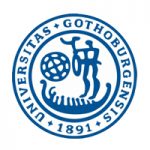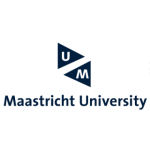项目介绍
The University of Gothenburg tackles society’s challenges with diverse knowledge. 56 000 students and 6 600 employees make the university a large and inspiring place to work and study. Strong research and attractive study programmes attract researchers and students from around the world. With new knowledge and new perspectives, the University contributes to a better future.
Doctoral position in biology, with a focus on plant ecology
At the Department of Biological and Environmental Sciences (BioEnv) we have teaching and research activities that stretch from the alpine ecosystem, through forests, cultivated land and streams, all the way into the marine environment. In these environments we study different levels of biological organisation from genes, individuals, and populations, to communities and ecosystems. We work within ecology, evolution, physiology, systematics, and combinations of these fields to understand the impact of natural and anthropogenic changes of the environment.
The department is placed at two different localities: in Natrium at Medicinaregatan 7B in Gothenburg and at the Kristineberg marine research station operated by the Marine Infrastructure at the University of Gothenburg. The current employment is based at Natrium in Gothenburg.
General information about being a doctoral student at the University of Gothenburg can be found on the university’s doctoral student pages.
Project description
This research aims to understand the effects of climate warming-driven changes in pollinator communities, the timing of flowering and their interaction on plant reproduction and plant community dynamics in the Swedish Arctic tundra. The study will use historical data, experiments and time-lapse camera images to investigate three specific objectives: 1) how the composition of pollinator communities has changed over the past three decades, 2) what consequences this change has for plant seed set, and 3) how changes in flowering time affect competition for pollinators and plant reproduction.
The PhD student will work at the Department of Biological and Environmental Sciences with Anne Bjorkman as main supervisor. There are also opportunities for collaboration with other researchers at the University of Gothenburg, Lund University, and Aarhus University. The project is linked to the strategic research area BECC (Biodiversity and Ecosystem services in a Changing Climate; http://www.becc.lu.se/) and the PhD student will be offered the opportunity to participate in the graduate school ClimBEco (http://www.cec.lu.se/climbeco-graduate-research-school/).
Duties
The main task is to conduct the PhD thesis work under supervision, which includes development of the PhD student’s methodological experience, analytical skills, as well as theoretical depth and breadth. Techniques that will be used in the project include pollination experiments, mark-recapture of bees, analysis of time-lapse images of flowering time, quantitative ecology (e.g., hierarchical modeling) and possibly molecular methods. The studies will be conducted both in the field and at Natrium in Gothenburg. Fieldwork will mainly take place at Latnjajaure in northern Sweden. The project is linked to issues in pollination ecology, Arctic ecology, global environmental change, and phenology.
Doctoral studies comprises four years of full-time study, and leads to a doctoral degree.
As part of your employment as a doctoral student, you may have departmental duties corresponding to up to 20 % of full-time employment, distributed throughout your study period, and result in a corresponding extension of the studies. Departmental duties usually consist of teaching at first- and second-cycle levels, but may also include research and administration.
Eligibility
Doctoral education requires general eligibility and, where appropriate, specific eligibility as set out in the general syllabus for the subject.
The general eligibility requirements for doctoral studies are:
- having completed a degree at second-cycle level, or
- the fulfilment of course requirements totalling at least 240 credits, of which at least 60 credits must be at second-cycle level, or
- the acquisition of equivalent knowledge in some other way, either in Sweden or abroad.
To meet the specific entry requirements for third-cycle studies, applicants must (at the time of appointment):
- have a second-cycle (advanced-level) degree in a relevant* subject area in the natural sciences, or
- have completed studies for at least 60 higher education credits at a second-cycle level in relevant subject areas in the natural sciences, or
- have completed a corresponding programme of relevance to the planned third-cycle programme, in Sweden or in another country, or have equivalent qualifications.
*Relevant subject for the planned third-cycle education is biology.
Assessment criteria
The selection of applicants who meet the basic and specific eligibility requirements will be based on the ability to assimilate the doctoral studies.
The following documented experience is a requirement:
- MSc in Ecology or a related field
- Solid background in plant ecology or conservation biology
- Ability to think critically and creatively
- Ability to work both individually and in a team. The ability and willingness to work in a team is essential for this position as the student will work closely with a postdoc in the group.
- Organizational skills and interest in managing a large project with fieldwork over several summers
- Experience and willingness to conduct fieldwork in challenging environments (cold and remote locations)
- Excellent ability to communicate orally and in writing in English is a requirement as we work in an international environment
- Experience in data analysis and programming in R (in particular linear and generalized linear hierarchical models)
Other desirable qualifications are:
- Expertise in plant phenology and/or plant-pollinator interactions
- Experience in using ecological methods, in particular pollination experiments, phenological monitoring and image analysis (e.g. time-lapse photos), and field identification of pollinating insects
- Experience of working together in a team
- Experience with scientific publishing
- Interest in supervising undergraduate students
The application should preferably be written in English and must include:
- A short cover letter with the applicant’s justification for the application, i.e., that describes how the applicant meets the selection criteria
- An attested list of qualifications (CV)
- Examination certificates and a transcript of courses with grades
- A copy of the Master thesis (or equivalent)
- Employment certificates and other documents deemed important by the applicant
The top ranked candidates will be selected for an interview, which might be held in English and could also be performed digitally.
Admission and employment
Once you have been admitted to doctoral studies, you will be employed as a doctoral student at the University of Gothenburg.
The provisions for employment as a doctoral student can be found in ordinance SFS 1993:100.
Initial employment as a doctoral student may apply for a maximum of one year, and may be renewed by a maximum of two years at a time.
A doctoral student may be employed as a doctoral student for a maximum of eight years, but the total period of employment may not be longer than the equivalent of full-time education at doctoral level for four years.
Placed at the Department of Biological and Environmental Sciences. Extent: 100%. First day of employment: 1 April 2025, or by agreement.
The University applies a local agreement on salaries for doctoral students.
Please note, doctoral studies at the Department of Biological and Environmental Sciences require physical presence to conduct the studies. If the admitted applicant needs a residence permit for higher education to pursue studies in Sweden, the Department of Biological and Environmental Sciences has the right to revoke the admission decision if the applicant cannot present a valid residence permit no later than at the start of the studies.
Contact information
For further information please contact:
Anne Bjorkman, Senior Lecturer
tel. +46 766182547
e-post: anne.bjorkman@gu.se
websida: www.edge-ecology.com
Åsa Arrhenius, Head of Department
tel. +46 31 786 26 25
Email: asa.arrhenius@bioenv.gu.se
If you have any questions about the employment process, please contact HR at the Department of Biological and Environmental Science, hr@bioenv.gu.se
Unions
Union representatives at the University of Gothenburg can be found here:
https://www.gu.se/om-universitetet/jobba-hos-oss/hjalp-for-sokande
Application
You can apply to be admitted to doctoral education via the University of Gothenburg’s recruitment portal.
It is your responsibility to ensure that the application is complete as per this notice, and that the University receives it by the final application deadline.
Applications must be received by: February 24th, 2025
Information for International Applicants
Choosing a career in a foreign country is a big step. Thus, to give you a general idea of what we and Gothenburg have to offer in terms of benefits and life in general for you and your family/spouse/partner please visit:
https://www.gu.se/en/about-the-university/welcome-services
https://www.movetogothenburg.com/
联系方式
电话: +46 31-786 00 00相关项目推荐
KD博士实时收录全球顶尖院校的博士项目,总有一个项目等着你!




